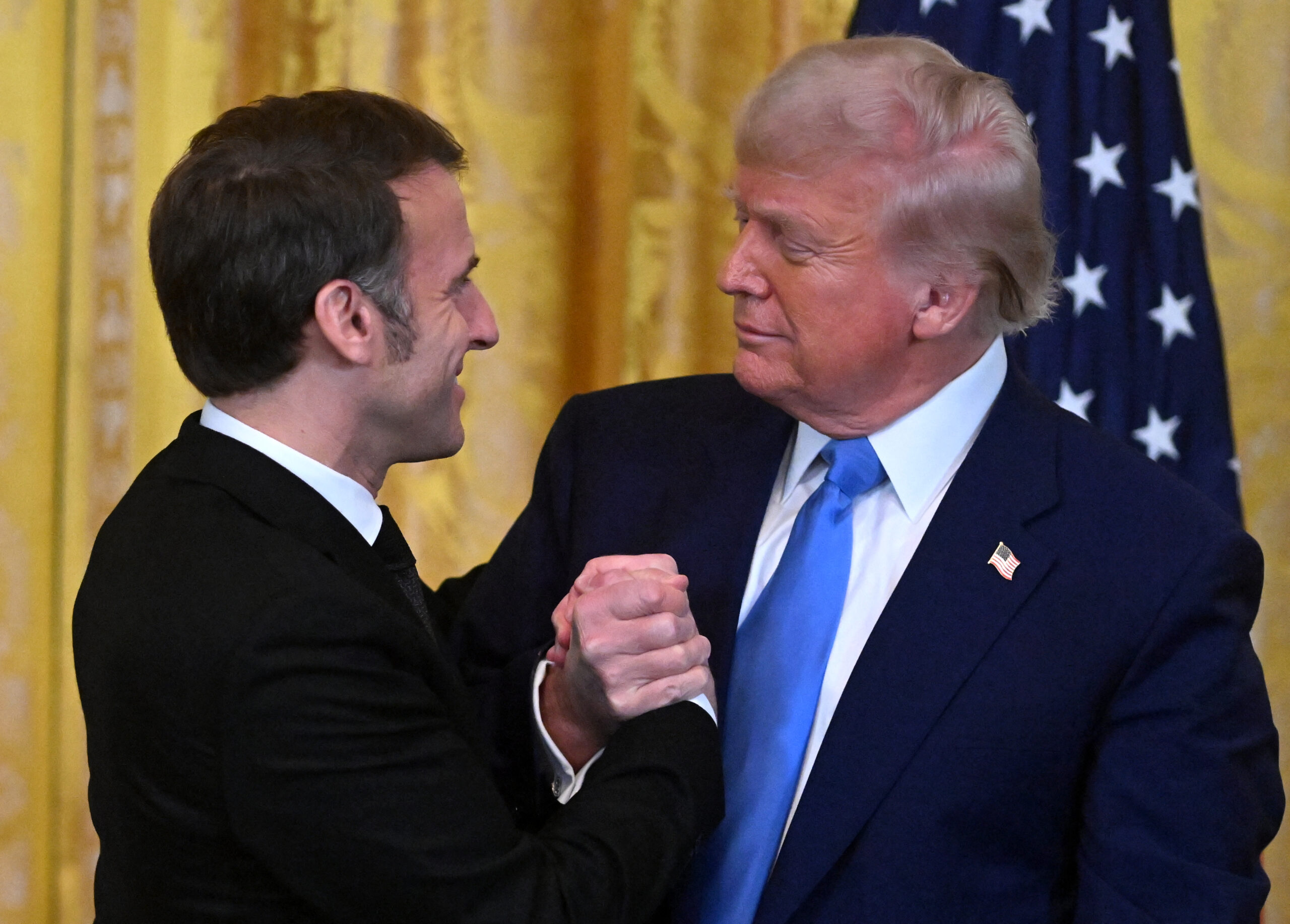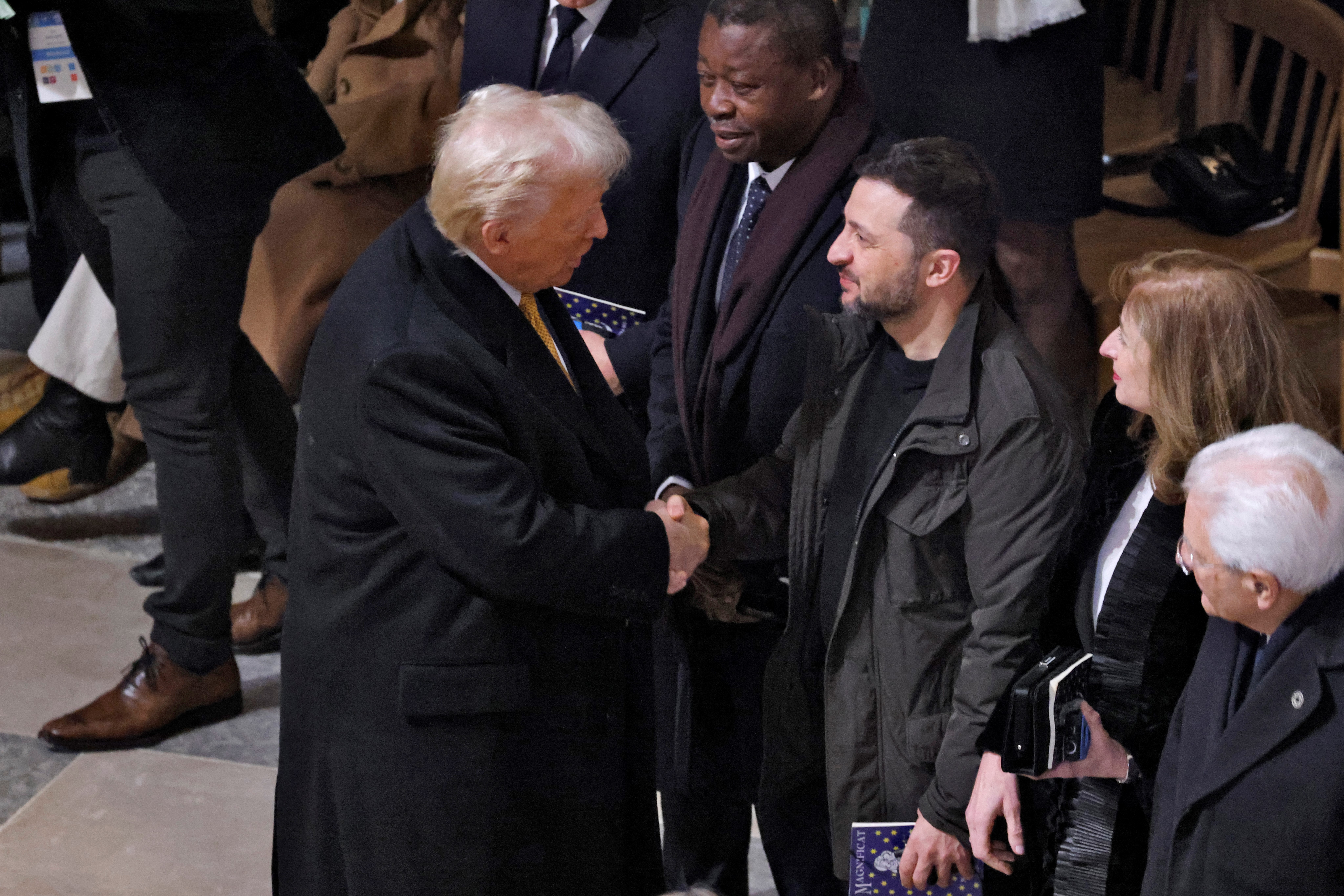Brussels – On the third anniversary of Russia’s invasion of Ukraine, in the hours when at the UN General Assembly, the United States, alongside Russia, Belarus, and North Korea, voted against a resolution condemning Moscow, French President Emmanuel Macron performed a series of political acrobatics and balancing acts in the Oval Office of the White House to try to bring Donald Trump back to the Atlanticist line or at least mend the rift between Washington and Brussels. Between praise, concessions, and denials, Macron may have partially succeeded.
Macron, the first European leader to visit the new US administration, warned Trump – who has said he wants to be remembered “as a peacemaker and unifier” – against “surrendering” Ukraine. The interest of everyone — Americans and Europeans — “is an agreement on Ukraine that includes security guarantees,” the transalpine leader stressed. The two connected from Washington for the G7 leaders’ meeting, chaired by Canadian President Justin Trudeau from Kyiv, where he was with Ursula von der Leyen and Antonio Costa.

Despite the obvious rifts, the meeting between the two presidents was cordial, at times warm. Or at least ‘physical,’ as when Macron interrupted Trump by taking his hand to correct the tycoon’s false claims about assistance to Ukraine. “Just so you know, Europe is loaning the money to Ukraine. They’re taking their money back,” Trump told reporters. “No, we have paid. We paid 60 percent of the total effort. Like the US: loans, guarantees, grants. We provided real money, to be clear,” Macron promptly replied. With a skeptical grin, Trump replied, “If you believe that, that’s fine with me. They get their money back, and we don’t. But now we do.”
The key step ahead of the negotiations concerns security guarantees for Ukraine. According to Trump, Putin “has no problem” with accepting a European military contingent in Ukraine as part of the agreement. “I specifically asked him this question. He will accept it,” the Republican president said. Despite resistance from some EU governments during last week’s talks at the Elysee Palace, Macron confirmed that European leaders are “ready to send troops to verify that peace is respected,” but they “need American protection.” This point will be crucial in future negotiations. Putin opposes the presence of NATO forces in Ukraine but could accept European peacekeeping forces outside the Atlantic Alliance umbrella. However, Europeans want ‘Uncle Sam’ to have their back somehow – yet to be defined.

Trump then returned to the controversial minerals deal with Kyiv, describing it as “very close.” The US president announced that Zelensky “may come this week or next week to sign the agreement” by which Ukraine would cede part of its mineral revenues to the United States to repay Washington for its assistance over the past three years. Last week, the Ukrainian premier rejected Trump’s request to receive $500 billion in critical minerals, a sum that is more than three times what Washington has spent so far to support Kyiv.
Then, there is the issue of Ukraine’s territorial integrity, a point on which Trump seems quite flexible. “We will see,” he replied to those who asked whether Kyiv should be willing to cede territory to Russia as part of a negotiation. Macron clarified that for Europe, peace “must allow for Ukrainian sovereignty and allow Ukraine to negotiate with other stakeholders.”
Today, EU High Representative for Foreign Affairs, Kaja Kallas, will arrive in Washington and meet with Secretary of State Marco Rubio. In the coming days – confirming that Trump prefers bilateral relations over those with the European Union – it will be the turn of British Prime Minister Keir Starmer, expected at the White House. The worst-case scenario of a two-way negotiation between Trump and Putin seems to be receding. Europe and Ukraine will sit at the negotiation table. As reported by Agence France-Presse, Putin reportedly stated that “not only European countries but also others have the right and can participate.” Regarding the Russian president, Trump said, “I really think he wants to make a deal. I could be wrong, but he wants to make a deal.” The question is what kind of deal — and with what balance of power — will the European Union and Ukraine be able to negotiate with the two superpowers.
Between now and Mar. 6, the extraordinary EU summit of heads of state and government on Ukraine, the 27 member states will try to build a solid negotiating position. If possible, in coordination with the American ally, but without betraying the principles that have guided European action in support of Ukraine, which Trump seems to have already sacrificed in the name of peace at any cost. To “prepare” for the extraordinary summit, the president of the European Council, Antonio Costa, has called a videoconference of the 27 leaders tomorrow morning (Feb. 26), during which they will hear “a report from President Emmanuel Macron on his recent visit to Washington DC.”
English version by the Translation Service of Withub







